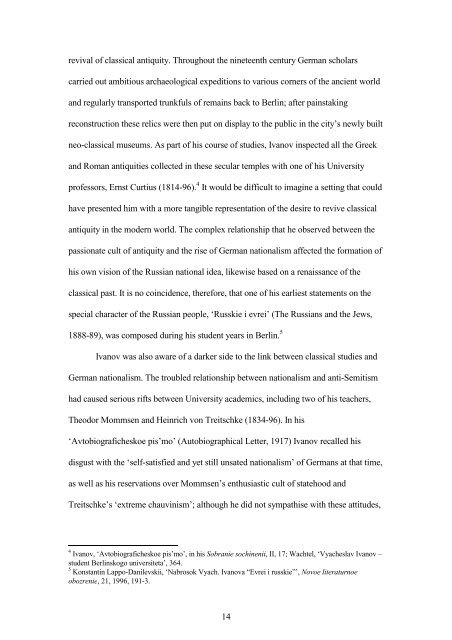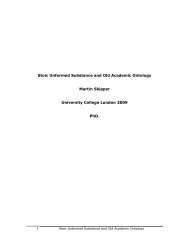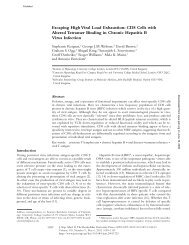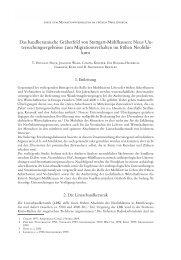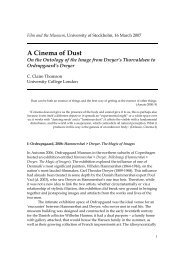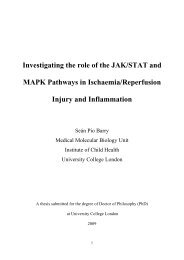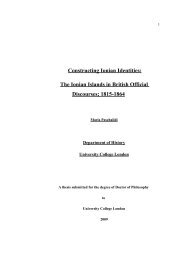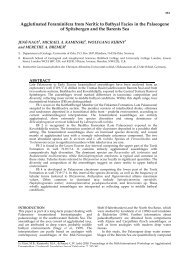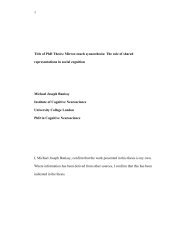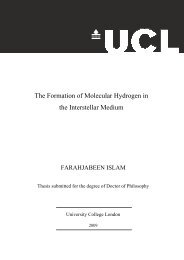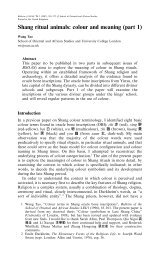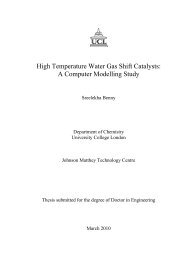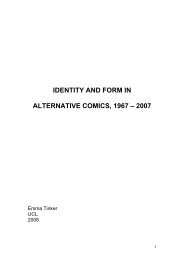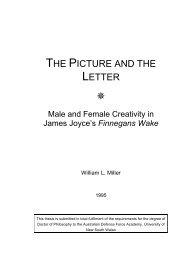Vyacheslav Ivanov and C.M. Bowra: a ... - UCL Discovery
Vyacheslav Ivanov and C.M. Bowra: a ... - UCL Discovery
Vyacheslav Ivanov and C.M. Bowra: a ... - UCL Discovery
Create successful ePaper yourself
Turn your PDF publications into a flip-book with our unique Google optimized e-Paper software.
evival of classical antiquity. Throughout the nineteenth century German scholars<br />
carried out ambitious archaeological expeditions to various corners of the ancient world<br />
<strong>and</strong> regularly transported trunkfuls of remains back to Berlin; after painstaking<br />
reconstruction these relics were then put on display to the public in the city’s newly built<br />
neo-classical museums. As part of his course of studies, <strong>Ivanov</strong> inspected all the Greek<br />
<strong>and</strong> Roman antiquities collected in these secular temples with one of his University<br />
professors, Ernst Curtius (1814-96). 4 It would be difficult to imagine a setting that could<br />
have presented him with a more tangible representation of the desire to revive classical<br />
antiquity in the modern world. The complex relationship that he observed between the<br />
passionate cult of antiquity <strong>and</strong> the rise of German nationalism affected the formation of<br />
his own vision of the Russian national idea, likewise based on a renaissance of the<br />
classical past. It is no coincidence, therefore, that one of his earliest statements on the<br />
special character of the Russian people, ‘Russkie i evrei’ (The Russians <strong>and</strong> the Jews,<br />
1888-89), was composed during his student years in Berlin. 5<br />
<strong>Ivanov</strong> was also aware of a darker side to the link between classical studies <strong>and</strong><br />
German nationalism. The troubled relationship between nationalism <strong>and</strong> anti-Semitism<br />
had caused serious rifts between University academics, including two of his teachers,<br />
Theodor Mommsen <strong>and</strong> Heinrich von Treitschke (1834-96). In his<br />
‘Avtobiograficheskoe pis’mo’ (Autobiographical Letter, 1917) <strong>Ivanov</strong> recalled his<br />
disgust with the ‘self-satisfied <strong>and</strong> yet still unsated nationalism’ of Germans at that time,<br />
as well as his reservations over Mommsen’s enthusiastic cult of statehood <strong>and</strong><br />
Treitschke’s ‘extreme chauvinism’; although he did not sympathise with these attitudes,<br />
4<br />
<strong>Ivanov</strong>, ‘Avtobiograficheskoe pis’mo’, in his Sobranie sochinenii, II, 17; Wachtel, ‘<strong>Vyacheslav</strong> <strong>Ivanov</strong> –<br />
student Berlinskogo universiteta’, 364.<br />
5<br />
Konstantin Lappo-Danilevskii, ‘Nabrosok Vyach. <strong>Ivanov</strong>a “Evrei i russkie”’, Novoe literaturnoe<br />
obozrenie, 21, 1996, 191-3.<br />
14


